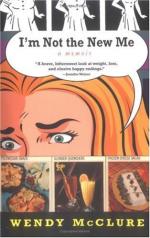“Why, man alive, I can’t do anything for you,” said Mr. Belden. “These carriages I see are waiting for the delegation, and here comes the train now; you’ll get along all right.”
He waited as the train slowed into the station, smiling anew at little Groper’s perturbation. He was quite curious to see the arrivals. Barnet had been the home of his youth, and there might be some one whom he knew. He had half intended, earlier in the day, to go himself to the Reform meeting, but a growing spirit of inaction had made him give up the idea. Yes, there was quite a carload of people getting out—ladies, too.
“Why, Will Belden!” called out a voice from the party. A tall fellow in a long ulster sprang forward to grasp his hand. “You don’t say it’s yourself come down to meet us. Here we all are, Johnson, Clemmerding, Albright, Cranston—–all the old set. Rainsford, you’ve heard of my cousin, Will Belden. My wife and Miss Wakeman are behind here; but we’ll do all the talking afterward, if you’ll only get us off for the hall now.”
“Well, I am glad to see you, Henry,” said Mr. Belden heartily. He thrust the pound of butter hastily into a large pocket of his mackintosh, and found himself shaking hands with a score of men. He had only time to assist his cousin’s wife and the beautiful Miss Wakeman into a carriage, and in another moment they were all rolling away toward the town hall, with little Mr. Groper running frantically after them, ignored by the visitors, and peacefully forgotten by his friend.
The public hall of the little town—which called itself a city—was all ablaze with light as the party entered it, and well filled, notwithstanding the weather. There were flowers on the platform where the seats for the distinguished guests were placed, and a general air of radiance and joyful import prevailed. It was a gathering of men from all political parties, concerned in the welfare of the State. Great measures were at stake, and the election of governor of immediate importance. The name of Judge Belden of Barnet was prominently mentioned. He had not been able to attend on this particular occasion, but his son had come with a delegation from the county town, twenty miles away, to represent his interests. On Mr. William Belden devolved the task of introducing the visitors; a most congenial one, he suddenly found it to be.
His friends rallied around him as people are apt to do with one of their own kind when found in a foreign country. They called him Will, as they used to, and slapped him on the shoulder in affectionate abandon. Those among the group who had not known him before were anxious to claim acquaintance on the strength of his fame, which, it seemed, still survived him in his native town. It must not be supposed that he had not seen either his cousin or his friends during his sojourn away from them; on the contrary, he had met them once or so in two or three years, in the street, or on the ferry-boat—though they travelled by different roads—but he had then been but a passing interest in the midst of pressing business. To-night he was the only one of their kind in a strange place—–his cousin loved him, they all loved him. The expedition had the sentiment of a frolic under the severer political aspect.




